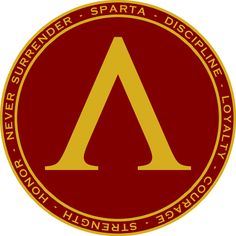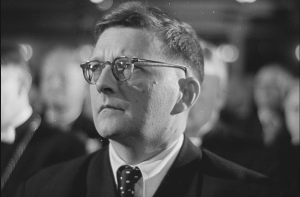Around 800 B.C.E., the Greek people were emerging as an Aegean power because of the growth of their many urban centers: city-states called poleis. These poleis functioned as principle centers for Greek societies. They varied in their political views and cultural practices from one another. One of the most important of the Greek city-states was the polis of Sparta.
Sparta was a part of a region called Laconia, which was located on the fertile peninsula in Greece called the Peloponnese. Although the Spartans were landlocked, they had the ability to use the Gyethio harbor when needed, along with the Evrotas River as a source of fresh water. Spartans had neighbors called helots, who were the descendants of the earlier Greek immigrants to Laconia. The helots were defeated by the Spartans, and were forced to serve as slaves to the Spartan community, and were not recognized as equal members of the Spartan society. Another group of people who were living within the Spartan society were called the Perioeci people. Their name translates to dwellers around, and they worked as traders and craftsman in the community, but were not citizens of the land of Sparta either. The Spartan exploitation of the helots allowed them to live a lifestyle of simplicity, frugality, and austerity. From this lifestyle, the Spartans were able to create an educational system they called the Agoge.1

The Agoge was characterized by the way Spartans raised their children and how they educated them. Their educational system emphasized physical education, warfare, and how to survive as a warrior. This was the toughest test one could face at the time because the Spartan army was well known all throughout Greece as having the most fearless and toughest fighting men in the world. Before a male child went through the hardships of the educational system, the child faced his first test at birth. Once the child was born it would be bathed in wine to determine if the baby would be strong enough to go through the hardships of becoming a Spartan warrior.2 Once the child survived, the elders who ruled Sparta would examine the baby for any birth defects or any blemishes that the baby might have. If the baby did not survive the wine bath or the Elder assessment, the baby was sent down to Mount Taygetos to perish.

If one were born a male, one would be raised mainly by one’s mother until reaching the age of seven. Boys were then sent to military training, or the Agoge. They were forced to learn to survive on their own, create their own meals, and learn to fight in the worst of conditions. During the Agoge, young Spartans would learn to overcome their fears by never showing weakness and trusting only a Spartan. The boys would also dine and be exposed to the lifestyle of a Spartan soldier and learn how to conduct oneself as a Spartan solider in society.3 By the age of twenty, males were encouraged to marry and have children. In order to fulfill this expectation of creating a family, the young soldiers were forced to sneak out of their barracks and return to the city to see the females. The young soldiers had to sneak out because their Agoge camp was away from the city and the trainees had to remain there until their training was completed.
By this age the soldiers were showing promise to their elders. The elders would let them start their membership to the syssitia, or clubs that had to do with dining hall messes and social religious groups within the city. The syssitias were already established through the army. The boys were placed or drafted into these different syssitias. Once placed into their syssitias, the boys would finish their training in these syssistias and learn how their new unit contributed to Spartan society. However, Spartan men were not considered or thought of as citizens until they reached the age of thirty. Once they were thirty, the trainees would become a full time soldier and full-membered citizens. Once this happened, they were allowed to participate in their new syssitia. It was an honor to participate in the mess hall because it shows that one was strong enough to provide for one’s family and for the community. Also, one belonged to a troop and had rank within the society. Even though they were seen as equals within the community, the men were not yet allowed to sleep with their wives overnight. The men were forced to sleep in quarters that housed each different syssitia. Now as an active soldier and equal in society, one served the Spartan army until the age of sixty.4 By the age of sixty, Spartans focused on their family and helped groom other young men that were in the process of becoming Spartan warriors. When serving the Sparta military, they held to the motto to come back victorious or die trying to be.
Although Sparta was a small polis within Greece, it was still able to be a prosperous and feared power in Greece. The Sparta population was about fifty to sixty thousand, which included the helots and Perioeci people. The Spartans only made up about fifteen thousand of that sixty thousand population. They were outnumbered sixteen to one, but were able to maintain order and peace through their strong and feared soldiers. This characteristic was admired by other city-states within Greece, many of whom took that admiration to forms of imitation. These traits that the Spartans would show and live by would eventually be copied or altered by others for a way of living or a way to build a strong army.
- Stephen Hodkinson, Anton Powell, and Jacqueline Christien, Sparta & War (Classical Press of Wales, 2006), 56-62, 102-126. ↵
- Maurice Pope, “Spartan details of daily life,” Times Higher Education Supplement no. 1626 (2004): 35. ↵
- John Buckler, Aegean Greece in the Fourth Century BC (Boston: Brill, 2003), 187-195, 203-210, 228-231. ↵
- Anton Powell, Athens and Sparta: Constructing Greek Political and Social History from 478 BC (Routledge, 2016), 78-93, 147-158, 303-331. ↵



51 comments
Mario Sosa
Very nice background information! I always imagined that Sparta was a giant kingdom with an enormous army. For a small area within Greece that was heavily outnumbered to become a greatly feared and respected city-state is quite an accomplishment. It is not surprising that the intense military training had a part in making Sparta a seemingly unstoppable force.
Hayden Hollinger
I find it very interesting to see how certain groups adapt to their surroundings in order to thrive and make the most of their resources. It was also interesting to read that the educational system focused around warfare and becoming a warrior. For every male, their lives are focused on becoming the strongest, best warrior possible. The author does a good job of explaining the process of the males from birth right through to fully grown which I found very informative.
Sergio Cervantes
I have only heard of the Spartans from the movie 300, but never understood how the society functioned or the different classes that were common. The standards and laws to which the people were held to are both, astonishing and impressive. It is unbelievable that infants were tested to see if they would make fine Spartan citizens and if not; then to be left to die on the side of a hill is horrific. The motto listed above proves how much Spartan warriors were devoted to lives in the military, often seeing surrender as disgraceful. It amazes me at how they were eventually defeated and lost their independence to the Roman Empire.
Erik Rodriguez
Awesome article! It amazes me how from a very young age these kids would have to go through brutal experiences! The departure of their family, physical hardship, and overall just psychological manipulation… that is just crazy! Life of a Spartan was truly a battle!
Great job! Keep up the good work!
Tina Valdez
Wow, I would not have imagined the life of a male in Sparta to be so intense since birth! I can certainly see why the Spartan warriors were known as the most fearless and toughest in the world. Your article makes me wonder how the warriors in other poleis were trained. It is difficult to imagine a baby sent to perish if they did not pass tests that they had no control over. I would argue that a Spartan warrior is a lifestyle in and of itself.
Oscar Sepulveda
I learned some new things in this article. I liked it very much and this shows a lot of great traits from such a fierce group of men. To be able to undergo some of the tasks that takes a lot of guts. The men were so amazing and they had the ability to show good attitude to their people. Keep working hard.
Andres Palacios
Really impressive and informative article, the history of the Spartan army is one of my favorites topics in World History. I did not know about the fact that they bathed the children in wine, so that was something new I learned from the article. It really describes perfectly what the Spartan army was really about, one of the most respected Army’s in the history. Very well written article also, great job.
Rafael Ortiz Salas
This a very interesting article. I really like Greek history, about the wars and battles, it really grabs my attention. I never knew that becoming a Spartan warrior could be so hard, I thought it was like a voluntary thing, and the fact the started as kids leaving their families behind makes it worse and sad. I really like the article, I learned a lot about the Spartans warriors. Good job.
Yesenia Cardenas
Such an interesting article! I did not know much about the Greeks and this article was very informative. I found it interesting that males were mainly raised by the mothers until the age of 7. I couldn’t imagine the life the young males went through learning to survive on their own.
Christian Lozano
Very informative. Unfortunately the Spartans took advantage of a people to build their empire. Also their indifference towards innocence is something to be frowned upon. The only thing seemingly worthy of praise is their abilities in War and Battle. I learned many new greek terms in this article, Thank You, and can not wait to see your next article.